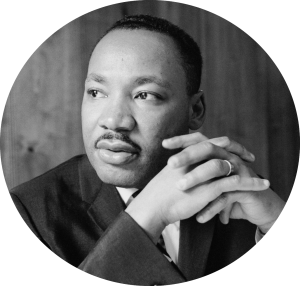HEALTHCARE
WHEN COMMUNICATION MATTERS
~Dr. Fatima Cody Standard, Stanford University
“It is so important to have a healthcare workforce which represents the tapestry of our communities as it relates to race/ethnicity, gender, sexual orientation, immigration status, physical disability status, and socioeconomic level to render the best possible care to our diverse patient populations.”

What’s the PDA?
The PDA is a groundbreaking online tool that:
- measures individual’s and group’s unconscious patterns related to race, sexual orientation, religion, gender, disability, class, and culture as described by the Power of Difference Model (see a summary of the PDM below).
- Is asset-based and is a scientifically valid and reliable assessment.
- Identifies areas of strength and specific areas for growth.
- Can be used as a pre and post measurement, strategic plan accountability, and/or as a coaching tool.
Benefits:
- The PDA supports people in becoming aware of how the patterns of the PDM (see below) operate within us, between us, and in our communities, organizations, and society.
- It gives us a kind of “map” of our patterns and our learning edges –without blame and shame!
- This awareness allows us to integrate the assets all three primary patterns for greater effectiveness across differences and greater clarity of purpose.
- From here, meaningful systemic change is engendered.
See the PDA study summary from North Carolina State University:
“Effective communication across all kinds of differences – race, culture, gender/gender identity, religion, disability, class, sexual orientation allows healthcare providers to better understand patients and respond more effectively to their needs. It plays a vital role in improving the providers ability to: accurately assess patient conditions, successfully explain medical issues to patients, make recommendations that respect the context of the patients life – a foundation for the providers effectiveness. You can’t learn this from a brochure. Providers need support, time, without blame and shame – right where they are!” ~J. Elliott Butler-Cisneros
Leave your information below if you’d like us to contact you to discuss your questions and unique needs.
The Power of Difference Model (PDM) in 4 Points
1. The PDM identifies 3 primary patterns of behavior, thought, feeling, and worldview related to our differences of race, sexual orientation, gender, socio-economic class, religion, disability, and ethnicity. We call these patterns: Sensitivity, Oneness, and Strength
2. Each one has assets and limitations as well a learning edge. The primary learning edge for Sensitivity is Strength, for Strength it’s Oneness, and for Oneness it’s Sensitivity
3. These patterns operate unconsciously within us, between us, in our communities, organizations, and society. They both reproduce and are reproduced from systems embedded with the same patterns. Each appears to conflict with the other two and this tension between them effectively creates and maintains a “dysfunctional balance” within us, in our families, organizations, cultures, and institutions.
4. By becoming aware of these internal patterns and learning to integrate and “leverage” the assets of all three patterns, individuals report greater:
- effectiveness across difference
- flexibility to leverage assets from any or all of the patterns as needed
- recognition of one’s own privilege and how to use it effectively
- Impact, generally, across differences as intended
- solidarity across differences
- pride without prejudice
- ability to refuse silence and violence.
- ability, clarity, and courage to withdraw participation in violent aspects of systems
- capacity to catalyze meaningful systemic change w/o effort
- internal stability…less rising and falling on external conditions
- clarity, empowerment, and fulfillment
- ability to hold others accountable to increased internal integration w/o blame or shame

Healthcare Pricing
Making our services accessible for any healthcare facility/practitioners that envision The Sum’s work as critical to their mission is a foundational part of our core values. Please let us know how we can make it work for you!
1. Model Introduction:
An hour-long model introduction (online or in person) can be helpful for a faculty, staff, department, school board, or administrative group in developing a common conceptual framework and language; learning the patterns of the PDM, and how they play out within individuals, in classrooms, schools, and campuses.
$400 (standard pricing is $600)
2. Group assessment:
A group assessment typically follows a Model Introduction and requires a week or two to allow group members to take the PDA as their schedule allows. The PDA is comprised of 70 likert scale items and takes about 20 minutes. Then a single, whole-group consultation (online for about an hour) presents the aggregate of all the individual’s scores in order for group members to see where they are as whole, their assets, learning edges, and support needs for growth.
$30 per person to be assessed and included in the group results (standard pricing is $40)
$600 for a group consultation (standard pricing is $900)
3. Individual Assessment/Consultation:
The group consultation can generate interest for a individuals in their personal results. This can take place at the convenience of the individual by scheduling a consultation on The Sum’s calendar. Individual consultations, like the group consultation, take place online and take about an hour. They focus on the gifts, learning edges and support needs and recommendations for the person.
$150 per person for individual consultations minus cost of group participation – so $120 additional (standard pricing is $200)
Note: some organizations cover the cost of individual’s consultations, subsidize the cost, or leave it to individuals to cover the cost)
Contact us to arrange a group or multiple individual PDA’s.
